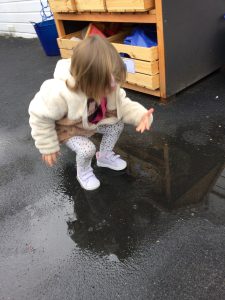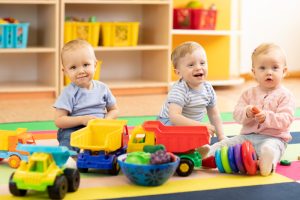Physical Development Policy.
Why we teach Physical Development?


Nursery Curriculum Overarching Principles.
Every child is a unique child, who is constantly learning and can be resilient, capable, confident, and self-assured.
Children learn to be strong and independent through positive relationships.
Children learn and develop well in enabling environments with teaching and support from adults, who respond to their individual interests and needs and help them to build their learning over time.
Children benefit from a strong partnership between practitioners and parents and/or carers.
Across all areas of the curriculum 3 characteristics of effective learning are key.
Playing and exploring – children investigate and experience things, and ‘have a go’.
Active learning – children concentrate and keep on trying if they encounter difficulties, and enjoy achievements.
Creating and thinking critically – children have and develop their own ideas, make links between ideas, and develop strategies for doing things.
What is Physical Development in the Foundation Stage?
Physical development contributes to cognitive development – as children move and explore the world they learn about the properties of objects and their own capabilities. In the early years children are establishing patterns of activity which will affect their whole future.
Physical development includes both growth and the ability to use muscles and body parts for particular skills. Both gross (large muscle movements) and fine (small movements) motor skills contribute to physical development. Physical development experiences and activities are crucial in the early years and are cited as one of the three prime areas of learning and development in the Early Years Statutory Framework (EYFS)
Physical activity is vital in children’s all-round development, enabling them to pursue happy, healthy and active lives. Gross and fine motor experiences develop incrementally throughout early childhood, starting with sensory explorations and the development of a child’s strength, co-ordination and positional awareness through tummy time, crawling and play movement with both objects and adults. By creating games and providing opportunities for play both indoors and outdoors, adults can support children to develop their core strength, stability, balance, spatial awareness, co-ordination and agility. Gross motor skills provide the foundation for developing healthy bodies and social and emotional well-being. Fine motor control and precision helps with hand-eye co-ordination, which is later linked to early literacy. Repeated and varied opportunities to explore and play with small world activities, puzzles, arts and crafts and the practice of using small tools, with feedback and support from adults, allow children to develop proficiency, control and confidence.
How we teach this in the Nursery
We provide challenging, well-resourced safe environments and opportunities which support and develop the fine and gross motor skills, independence, creativity and imagination of each child.
We plan daily opportunities for energetic play, activities to develop fine-motor skills, and opportunities for children to explore and practice a healthy lifestyle. Children are given time, space and opportunity to explore, experiment and repeat movements and actions in order to develop their co-ordination, agility, strength, confidence and self-esteem.
Children are encouraged to access physical activity within all areas of learning e.g., counting hops and jumps in mathematics, experimenting with mark marking (large and small) and dancing to music.
Children are encouraged to take risks and learn from their mistakes as well as their successes. For example, tackling the obstacle course and climbing frame.
Children are supported in child-initiated/ independent activities eg staff may support children in finding resources which will enable them to explore rolling down a grassy bank.
Effective Teaching involves:
Working in partnership with parents, because parents continue to have a prime teaching role with their children.
As with all other Areas of Learning, the teaching and learning of physical development in our Nursery takes place both indoors and outdoors through a wide range of practical and “hands on” activities.
Practitioners;
- Recognise and are committed to the value of physical activity and the importance of promoting healthy lifestyles. We aim to share these beliefs and promote understanding with parents and carers as well as with the children.
- Plan to ensure that all children have access to daily opportunities for daily physical activities both indoors and outdoors and in all weathers.
- Zone the outdoor play area to enable specific skills to be taught safely.
- Observe and listen to children to better understand their interests and provide opportunities/resources for child-initiated learning.
- Act as role-models in demonstrating the safe use and manipulation of resources as well as allowing children time for exploration and experimentation e.g. using scissors.
- Support children’s understanding of their movements and actions by “narrating” their play so that they can begin to understand the vocabulary of movement alongside their actions.
- Counter any stereotypical behaviours e.g. encouraging and including all children regardless of gender or ability to participate in playing football, digging, construction, home-play etc.
- Provide appropriate levels of support to children when they are getting dressed to go outdoors, using dress-up clothing or in using the toilet or bathroom, which will encourage them to develop independence in their self-care skills, e.g. encouraging a child to pull up their zip once fastened, take-off their own clothing if they are being changed.
Planning for Physical Development.
Planning for PD is devised in line with the EYFS Statutory Framework, with reference to Development Matters, Birth to 5 Matters and from observation and assessment of children’s needs.
It includes;
The Nursery’s annual programme of 6 termly themes which demonstrates how areas of the EYFS framework are broken down and woven through other areas.
Termly plan.
Continuous Provision Planning.
Weekly planning – seen on our assessment board and weekly planning board. These build upon children’s interests and next steps.
Support for each child.
We believe every child can succeed. Provision will be made to meet the individual requirements of children with any additional needs, to enable them to make progress in their Physical Development and achieve their full potential, e.g., through specific targets as part of an Individual Support Plan.
Staff will liaise and work closely with parents and other professionals involved with the child and respond to the advice they offer. Where necessary, resources and equipment to support children with additional needs will be procured from other agencies.
We show awareness of, and sensitivity to, the needs of children who need support in the next stage of their physical development and plan appropriately challenging activities.
Health & Safety – Managing Risk
We believe that risk-taking is an integral part of promoting physical competence.
“It is counter-productive to focus on keeping children away from every risk, however slight. We are likely to create a boring environment for them, without challenge or excitement. We also project an image of ourselves as people who block children’s interests and curiosity”.
Jennie Lindon, “Too Safe for Their Own Good” 2011
The Health and Safety of the children is paramount. Staff check resources and areas daily and remove or report anything which may present a danger or health-risk. Children are encouraged to consider their own and others safety both indoors and outdoors e.g. using “walking feet” indoors.
The outdoor play area is “zoned” to ensure that activities can be undertaken safely and uninterrupted.
Within the Health and Self-care aspect, children are taught the importance of personal hygiene e.g hand-washing, disposing of used paper tissues etc.
Children’s dietary needs and medical conditions such as allergies are considered in the planning and provision of activities and snacks.
Observation, Assessment, Monitoring and Record-Keeping
Children’s skills and stages of development are observed and monitored by keyworkers. Observations may be long or short and supported by evidence such as annotated photographs or pieces of work when possible.
Observations and records inform planning, identify next steps for each child, may identify a learning difficulty or talent, and provide the nursery with the means to monitor cohort progress and collect data on the effectiveness of the provision.
Records of individual children’s progress and achievement will be shared via our new Famly app.
When a child is aged between two and three, practitioners will review their progress, and provide parents and/or carers with a short-written summary of their child’s development in the prime areas.
 Hilltoppers Nursery Astrea Academy Trust
Hilltoppers Nursery Astrea Academy Trust